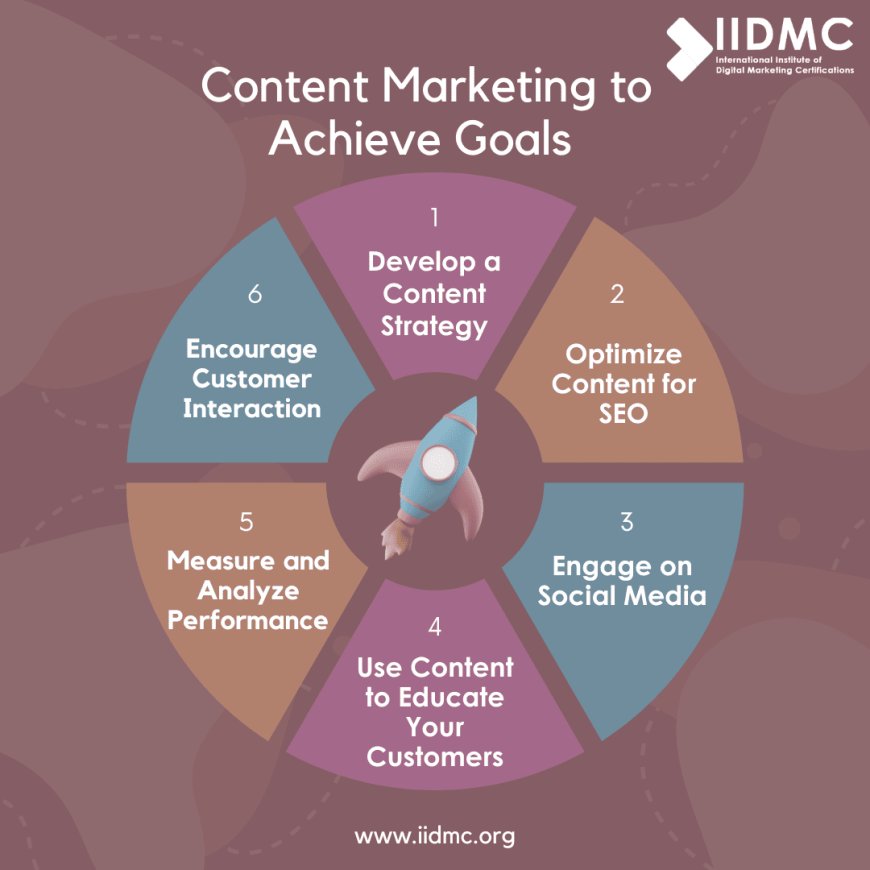Exploring the Benefits of Content Marketing
Discover the power of Content Marketing: Learn how strategic content creation can boost engagement, drive traffic, and enhance brand visibility.

Content marketing is a strategic approach focused on creating and distributing valuable, relevant, and consistent content to attract and retain a clearly defined audience — ultimately, to drive profitable customer action. It involves the use of articles, videos, podcasts, and other media intended to attract and engage customers. This method is crucial in modern digital marketing strategies because it helps build trust with consumers, enhances engagement, and improves brand awareness.
The adoption of content marketing has been growing among businesses of all sizes and across various industries. This growth is due to its cost-effectiveness and demonstrated ability to increase customer loyalty and purchase intent. Content marketing provides businesses with a dynamic tool to differentiate themselves in a competitive market and to create deeper connections with their customers through valuable content.
Changing Consumer Engagement Online
Consumer behavior has significantly shifted towards seeking valuable content and engaging with brands online. Today, consumers prefer to interact with content that offers them real value, whether it’s informative, educational, or entertaining. This change is largely driven by the increased access to digital content and the wide array of options available. As a result, traditional advertising techniques that focus solely on promotion are less effective.
Furthermore, consumers actively engage with their favorite brands through social media platforms, blogs, and forums where they can express their opinions, ask questions, and provide feedback. This interaction not only helps build stronger relationships between brands and consumers but also influences others’ purchasing decisions. The trend of consuming meaningful content and engaging online has prompted businesses to rethink their marketing strategies and focus more on content that addresses consumer interests and needs.
What are the key benefits of content marketing
Content marketing offers several key benefits that make it an effective strategy for businesses:
1. Increased Brand Awareness: By consistently providing valuable content, companies can keep their brand in the minds of consumers, helping to increase recognition over time.
2. Improved Customer Engagement: Content that resonates with an audience fosters better engagement by encouraging interactions such as shares, comments, and discussions on social media platforms.
3. Enhanced SEO: Quality content boosts search engine optimization efforts. Search engines reward businesses that produce relevant and frequently updated content with higher rankings, which leads to increased website traffic.
4. Lead Generation: Content marketing can help in generating leads. By offering content that is useful to the target audience, businesses can encourage potential customers to provide their contact information.
5. Customer Education: It helps in educating customers about products or services. Well-informed customers are more likely to make purchasing decisions, enhancing the overall sales process.
6. Building Trust and Credibility: Providing consistent, helpful content establishes a business as a trusted leader in its field. This trust is crucial for attracting and retaining customers.
Presenting these benefits in points is effective as it allows each benefit to be clearly defined and easily understood, making it suitable for readers who want quick and clear information on why content marketing is valuable.
How can businesses use content marketing to meet their goals?

Businesses can leverage the benefits of content marketing to achieve their marketing objectives in several practical ways:
-
Develop a Content Strategy: Align content with the brand’s marketing goals. Create a calendar and plan content that addresses different stages of the customer journey, from awareness to decision-making.
-
Optimize Content for SEO: Use keywords strategically in your content to improve search engine rankings. This helps increase organic traffic to your website, making it easier for potential customers to find you.
-
Engage on Social Media: Share your content on social media platforms where your target audience is active. Use these platforms to interact directly with customers, answer questions, and gather feedback.
-
Use Content to Educate Your Customers: Produce informative content that helps customers understand your products or services better. This not only helps in building trust but also positions your brand as an authority in your field.
-
Measure and Analyze Performance: Regularly track how well your content is performing using analytics tools. Look at metrics like page views, shares, and time spent on the page to understand what resonates with your audience and refine your strategy accordingly.
-
Encourage Customer Interaction: Invite your audience to engage with your content through calls to action, such as asking for comments, sharing on social media, or signing up for more information.
Content's Role in the Buyer’s Journey
Content plays a crucial role in guiding prospects through the buyer's journey and converting them into customers.
-
Awareness Stage: At this initial stage, content helps attract potential customers by providing information that addresses their needs or problems. Blog posts, articles, and social media updates are examples of content that can raise awareness and draw in prospects.
-
Consideration Stage: During the consideration stage, prospects are looking for more detailed information to compare options. Content such as whitepapers, eBooks, and case studies can provide in-depth knowledge and showcase the benefits of a product or service, helping prospects evaluate their choices.
-
Decision Stage: At the decision stage, prospects are ready to make a purchase decision. Content like product demonstrations, testimonials, and detailed FAQs can address any remaining concerns and persuade them to choose a particular product or service.
-
Post-Purchase Stage: After the purchase, content continues to play a role by providing support and building loyalty. Instructional guides, how-to videos, and customer support content help ensure a positive experience, encouraging repeat business and referrals.
Building Trust with Authentic Content
Trust-building is essential in content marketing, and it relies heavily on consistency and authenticity. When a business consistently provides valuable and relevant content, it helps establish reliability and dependability in the eyes of the audience. Authentic content that genuinely addresses the audience's needs and pain points shows that the business understands and cares about its customers.
By focusing on creating content that solves problems, answers questions, and offers useful information, businesses can build a strong connection with their audience. This connection fosters trust, which is crucial for converting prospects into loyal customers. Over time, as the audience continues to receive helpful and honest content, their trust in the brand grows, leading to increased engagement and stronger customer relationships.
High-Quality Content's Impact on SEO and Traffic
High-quality content significantly impacts search engine optimization (SEO) and organic traffic growth. Search engines prioritize content that is relevant, informative, and valuable to users. By creating high-quality content, businesses can improve their search engine rankings, making it easier for potential customers to find them.
-
Improved Rankings: Search engines use algorithms to rank websites. High-quality content that includes relevant keywords, answers user queries, and provides valuable information is more likely to rank higher on search engine results pages (SERPs).
-
Increased Organic Traffic: When content ranks higher, it becomes more visible to users, leading to increased organic traffic. Users are more likely to click on and visit websites that appear at the top of SERPs.
-
Enhanced User Experience: Quality content keeps users engaged, reduces bounce rates, and encourages longer site visits. This positive user experience signals to search engines that the website is valuable, further boosting rankings.
-
Backlink Generation: High-quality content is more likely to be shared and linked to by other websites. These backlinks are an important factor in SEO, as they enhance the website's credibility and authority.
-
Keyword Optimization: Well-crafted content naturally incorporates keywords and phrases that potential customers are searching for, helping to attract the right audience.
Content marketing offers several key benefits, including increased brand awareness, improved customer engagement, enhanced SEO, and effective lead generation. It helps educate customers, build trust, and establish credibility. Businesses should invest in content marketing as a crucial part of their overall marketing strategy. To get started or improve existing efforts, develop a clear content strategy, focus on creating valuable and relevant content, optimize for SEO, engage with your audience on social media, and regularly measure and analyze performance to refine your approach.




























